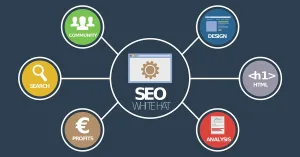Today the Rules of Thumb blog from MoneyThumb would like to inform our readers of things to watch out for when searching for a hard money lender. Most hard money lenders are straightforward, honest, and totally legitimate. We have many hard money lenders who use our PDF financial file converters to help them make quicker and better-informed lending decisions and we are proud to do business with them. A private loan from a hard money lender can create wonderful possibilities for those who may not be able to qualify for a traditional loan. But in any business niche, there are always going to be a few bad apples. That's just life.
There are red flags to be on the lookout for and we have listed the main ones below:
Red flags:
- No license in states where licenses are required.
- English is off a little.
- They reach out to you. Very few—if any—lenders solicit for business in this manner. (Ninety-nine percent of the time, the borrower makes the first contact with a legitimate lender.)
- Basic website with no real information and no mention of the actual principles.
- Again, terms that are too good to be true. (Once you realize there is NO 5 percent money, you should just move on.)
- Too quick to approve you and your deal with minimal information. (Remember, their goal is speed—getting some money out of you as quickly as possible.
- Any lender that says they make loans for $20K to $20 million, this simply is not real. (They do this to catch all the fish in the sea.)
We found this list of red flags in an article at Bigger Pockets, written by Jay Hinrichs. The MoneyThumb team is confident in the opinions of Mr. Hinrichs since he knows of what he speaks. Jay started his hard money lending career in the latter half of the 1980s and was president of Langer Mortgage in Oakland, Calif., with a $50 million book and 250 investors. This company-matched investors to loans and fractionalized loans were the norm. The company was sold in 1992 to a larger firm. In 2002, Jay started another hard money lending company in Oregon—this time using bank wholesale lines for their fundings and internal cash. He grew that company to $30 million.
Jay Hinrichs also talks about the origins of hard money lending and how to spot legitimate hard money lenders when you are seeking a private loan. Jay says that there are "very large hard money lenders, plus a large amount of smaller, local companies that have entered the business. In addition to that, today we’re living in an age of mass information.
There is also an illusion that there is a difference between a private money lender and a hard money lender. Many smaller hard money lenders rebranded as private money lenders to feed into the illusion that their rates would be lower. (And we are all looking for lower rates, right?)"
So, anyone who advertises is a hard money lender, even if they call themselves a private money lender. A true private money lender is one that you meet at an REIA. They are not in the business of loaning money and will usually use their IRA or solo 401(k) to make a few loans a year.
Where do hard/private money lending companies get the money to lend to the end borrower?
- They will broker loans to investors one-off.
- They create a PPM and pay investors a rate of return.
- They can get a facility from a bank as a wholesale line and then re-lend those funds. (This is how I ran my company.)
- They can crowdfund, raising investor capital to put into loans.
Mr. Hinrichs has no sympathy for shady, illegitimate lenders of any kind. In the Bigger Pockets article, he calls them "pump and dump," lenders. He warns readers in the article that targets of these people posing as lenders are generally anyone on social media who mentions needing or wanting a loan. They hide behind their computers, usually have a very basic website, and talk a great game. The lead-in is very low rates—right now, most like to quote 5 percent! Jay Hinrichs states, "There is no 5 percent, hard money lender, in the country."
He goes on to say, "So, what these predators do is engage in an easy banter—talk enough about the business to give you the illusion they are lenders that can perform. However, as the transaction progresses, they then will ask for some sort of good faith deposit or money upfront to draw the docs, etc.
Once they have hooked their victim and collected the first deposit, they keep coming back for more. One expense is pitched as the so-called insurance premium. Since they are loaning you money at 5 percent with nothing down, you must take out this insurance to protect them."
Please understand that this is a fraud. There is no insurance for hard money loans or private money loans. It’s a made-up fee. Some of these predators are very good at what they do and will get thousands out of a client before finally going dark and never funding.
We appreciate the information Jay Hinrichs shares about what to watch out for when seeking a private loan, and we know our readers do too. We'd love it if you shared this blog post from MoneyThumb so that your peers can also be forewarned about fake lenders and how to quickly spot the differences between the good guys and the bad guys.





















Add comment